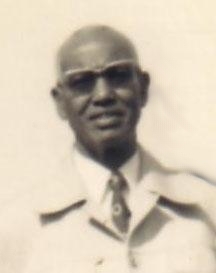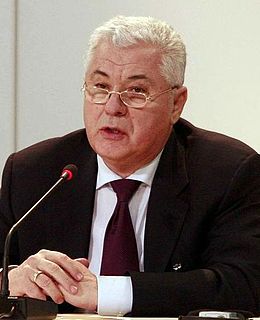Djibouti is a country in the Horn of Africa. It is bordered by Somalia to the southeast, Eritrea and the Red Sea to the north and northeast, Ethiopia to the west and south, and the Gulf of Aden to the east.

Politics of Djibouti takes place in a framework of a presidential representative democratic republic, whereby the executive power is exercised by the President and the Government. Legislative power is vested in both the Government and the National Assembly. The party system and legislature are dominated by the socialist People's Rally for Progress. In April 2010, a new constitutional amendment was approved. The President serves as both the head of state and head of government, and is directly elected for single six-year term. Government is headed by the President, who appoints the Prime Minister and the Council of Ministers on the proposal of the latter. There is also a 65-member chamber of deputies, where representatives are popularly elected for terms of five years. Administratively, the country is divided into five regions and one city, with eleven additional district subdivisions. Djibouti is also part of various international organisations, including the United Nations and Arab League.

Ismaïl Omar Guelleh is the current President of Djibouti, in office since 1999. He is often referred to in the region by his initials, IOG.

Dileita Mohamed Dileita is a Djiboutian politician who was the Prime Minister of Djibouti from 7 March 2001 to 1 April 2013. He was Vice-President of the People's Rally for Progress (RPP), the governing political party, until 2012. He also served as President of the Union for the Presidential Majority (UMP), the governing coalition. In June 2014, Dileita was appointed as the African Union's Special Envoy for Libya.
The People's Rally for Progress is a political party in Djibouti. It has dominated politics in the country since 1979, initially under the rule of President Hassan Gouled Aptidon. Today it is led by President Ismail Omar Guelleh and is in a coalition government with Front for the Restoration of Unity and Democracy (FRUD) and other parties.
The National Democratic Party is a political party in Djibouti. It was founded as an opposition party in 1992 by Aden Robleh Awaleh, who remains the party's president. It was part of the ruling coalition in 2005, but has since rejoined the opposition against President Ismaïl Omar Guelleh.

Hassan Gouled Aptidon was the first President of Djibouti from 1977 to 1999.

National-level elections in Djibouti are held for the President and the unicameral National Assembly.

The 2008 Russian presidential election was held on 2 March 2008, and resulted in the election of Dmitry Medvedev as the third President of Russia. Medvedev was elected for a 4-year term, whose candidacy was supported by incumbent President Vladimir Putin and five political parties, received 71% of the vote, and defeated candidates from the Communist Party of the Russian Federation, the Liberal Democratic Party of Russia and the Democratic Party of Russia.
Aden Robleh Awaleh is a Djiboutian politician and President of the National Democratic Party (PND). He is currently a member of the National Assembly of Djibouti.

Djibouti is a country located in the Horn of Africa. It is bordered by Eritrea in the north, Ethiopia in the west and south, and Somalia in the southeast. The remainder of the border is formed by the Red Sea and the Gulf of Aden at the east. Djibouti occupies a total area of 23,200 km2 (8,958 sq mi).

Parliamentary elections were held in Moldova on 5 April 2009. The Party of Communists of the Republic of Moldova (PCRM) won a majority of seats for the third consecutive occasion. Turnout was 59%, exceeding the 50% necessary for the election to be valid.

The 2005 Djiboutian presidential election took place on the 8 April 2005. The incumbent President of Djibouti, Ismail Omar Guelleh, was re-elected to a second six-year term in an unopposed election.

The 2003 Djiboutian parliamentary election took place in Djibouti on 10 January 2003 to elect the National Assembly of Djibouti. The ruling coalition of President Ismail Omar Guelleh won all 65 seats in the election defeating an opposition coalition.

The 2011 Djiboutian protests were widespread demonstrations and riots that took place between January and March 2011 in Djibouti, situated in the Horn of Africa. A member of the Arab League, the protests in Djibouti showed a clear influence from the concurrent Arab Spring protests in North Africa and the Arabian peninsula. The demonstrations ended after mass arrests and the barring of international observers.

The issue of human rights in Djibouti, a small country situated within the Horn of Africa, is a matter of concern for several human rights organizations. In its 2011 Freedom in the World report, Freedom House ranked Djibouti as "Not Free", a downgrading from its former status as "Partly Free". The nation most recently saw martial violence in 2008, in the form of border clashes with neighbouring Eritrea.

Presidential elections were held in Djibouti on 8 April 2016. Incumbent President Ismaïl Omar Guelleh was re-elected for a fourth term, receiving 87% of the vote in the first round.
Freedom of the press in Djibouti is not specifically mentioned by the country's constitution. However, Article 15 of the Constitution of Djibouti] does mention an individual's right to express their opinion "...by word, pen, or image..." and notes that "these rights may be limited by prescriptions in the law and in respect for the honour of others."
Kadra Mahamoud Haid is a Djiboutian politician, political advisor, and First Lady of Djibouti since 1999. She is the wife of President Ismaïl Omar Guelleh and operates in practice as his Vice-President.











